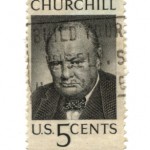 The wife and I were at a local sports bar tonight with Tennessee alumni watching the Volunteers play Memphis. The Vols played well but the service at the bar was terrible.
The wife and I were at a local sports bar tonight with Tennessee alumni watching the Volunteers play Memphis. The Vols played well but the service at the bar was terrible.
When our waitress would come out from the bar she would go to just one table each time then return to the bar. She never lifted up her eyes to see if anyone else at a different table needed anything. This went on all night. No less than five times I was waiving my arms trying to get her attention, but she didn’t look up, not once. Instead, she was focused only on the table she came out to check on.
We were finally able to get our check, pay and leave. On the way home we went through the drive thru at the local McDonald’s for an ice cream cone. The attendant handed me the cone with so much ice cream it was about to fall off the top of the cone. Along with the one ice cream cone he handed me eight napkins. Yes, eight.
Now the waitress and the McDonald’s employee, although young, both seemed reasonably intelligent. Yet both of them were terrible at doing jobs that weren’t difficult because they didn’t see the big picture.
The waitress didn’t get that her job was to serve her customers; she apparently thought she was just supposed to take and deliver orders.
The McDondald’s employee didn’t understand his employer was interested in making a profit. If he had understand this, he wouldn’t have wasted his employer’s money by putting way too much ice cream in the cone and giving me eight napkins when I only needed one. Neither he nor the waitress saw the big picture.
After Jesus ministered to the woman at the well, His disciples returned from getting food and encouraged Him to eat. When Jesus told them He had food they didn’t know about, they began to discuss amongst themselves how Jesus had gotten food without them knowing.
Jesus explained he wasn’t talking about food, but doing the Father’s will. He then encouraged them to see the big picture: “Behold, I say to you, lift up your eyes and look on the fields, that they are white for harvest.” (John 4:30-38).
The disciples didn’t understand what Jesus was talking about because they weren’t focused on the big picture. Their focus determined their understanding.
Are you seeing the big picture of the kingdom of God or are you focused on only what is immediately before you? GS





